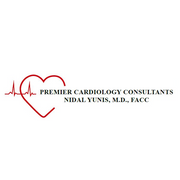4 Myths About High Blood Pressure & Heart Rate

Heart disease is the leading cause of death around the globe, which is why it’s more vital than ever to understand cardiovascular health. While blood pressure and heart rate are two main aspects of maintaining your health, there are many myths about them. The most prevalent are debunked below, so use the information, as well as assistance from a cardiologist to improve your heart health.
Common Myths About Heart Rate & Blood Pressure
1. I Don’t Have Symptoms of High Blood Pressure, so I’m Fine
Blood pressure measures how well your heart is pumping blood throughout your body. High blood pressure occurs when your heart has to overwork to pump blood through narrow arteries. The stress can lead to heart failure and other conditions, which is why it’s important to identify high blood pressure.
Common symptoms include headache, dizziness, chest pain, and shortness of breath. It’s important to understand that patients don’t always experience symptoms, however, which is why high blood pressure is called “the silent killer.” You can stay ahead of and manage your blood pressure by seeing your physician at least once a year for a physical.
2. Low Heart Rate Means Something Is Wrong
 Your heart rate, called a pulse, measures how many times your heart beats per minute. It drops in states of rest and increases during activity. Healthy adults have 60-100 beats per minute.
Your heart rate, called a pulse, measures how many times your heart beats per minute. It drops in states of rest and increases during activity. Healthy adults have 60-100 beats per minute.
Many people believe when pulse drops below 60, it means something is wrong. While significant drops can represent heart failure or an issue with your heart’s electrical system, a lower heart rate may also mean you’re in good shape. This is common with professional athletes who are in exceptional condition. The only way to truly know is to schedule a test with a cardiologist.
3. Eliminating Salt Will Fix High Blood Pressure
Cutting back on salt, which contains sodium, can improve blood pressure in many people. However, it takes more than just cutting out table salt. You need to look at the labels of everything you eat. Salted beans, frozen meals, processed foods, and canned and cured meats are commonly packed with sodium, and will gradually devastate your heart.
4. Calm People Don’t Develop High Blood Pressure
Stress is a contributing factor to blood pressure. However, just because you’re calm doesn’t mean you’re safe from blood pressure issues. Anyone can develop high blood pressure. Alongside regulating stress, you should also exercise regularly, avoid tobacco, and eat a diet rich in fruits, vegetables, and lean meats.
It’s important to build a relationship with a cardiologist, and Dr. Nidal Yunis, M.D. of Premier Cardiology Consultants can help. Based in Cowarts, AL, Dr. Yunius has treated patients for over 25 years. From blood pressure management to heart disease treatment and surgery, he’ll create a personalized treatment plan to keep you healthy. Call (334) 699-6396 to schedule an exam and visit his website to learn more about his services.
About the Business
Have a question? Ask the experts!
Send your question

